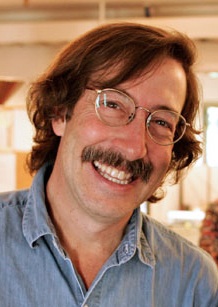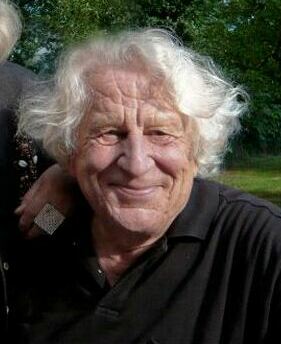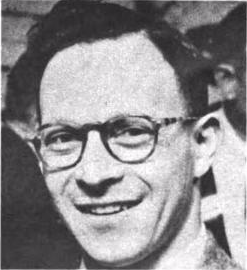Related Research Articles

Photojournalism is journalism that uses images to tell a news story. It usually only refers to still images, but can also refer to video used in broadcast journalism. Photojournalism is distinguished from other close branches of photography by having a rigid ethical framework which demands an honest and impartial approach that tells a story in strictly journalistic terms. Photojournalists contribute to the news media, and help communities connect with one other. They must be well-informed and knowledgeable, and are able to deliver news in a creative manner that is both informative and entertaining.

Stock photography is the supply of photographs that are often licensed for specific uses. The stock photo industry, which began to gain hold in the 1920s, has established models including traditional macrostock photography, midstock photography, and microstock photography. Conventional stock agencies charge from several hundred to several thousand US dollars per image, while microstock photography may sell for around US$0.25 cents. Professional stock photographers traditionally place their images with one or more stock agencies on a contractual basis, while stock agencies may accept the high-quality photos of amateur photographers through online submission.

Rick Smolan is a former Time, Life, and National Geographic photographer best known as the co-creator of the Day in the Life book series. He is currently CEO of Against All Odds Productions, a cross-media organization.

Arthur Rothstein was an American photographer. Rothstein is recognized as one of America's premier photojournalists. During a career that spanned five decades, he provoked, entertained and informed the American people.
The American Society of Media Photographers, abbreviated ASMP, is a professional association of imaging professionals, including photojournalists, architectural, underwater, food/culinary and advertising photographers as well as video/film makers and other specialists. Its members are primarily those who create images for publications, though many cross over into wedding and portrait photography.
Photography Studies College, commonly abbreviated to PSC, is a privately owned independent tertiary photography college established in 1973, located in Melbourne, Victoria, Australia.

Richard Leo Woldendorp AM was a Dutch-Australian photographer known for his aerial photography of Australian geography.
Lois Greenfield is an American photographer best known for her unique approach to photographing the human form in motion. Born in New York City, she attended Hunter College Elementary School, the Fieldston School, and Brandeis University. Greenfield majored in Anthropology and expected to become an ethnographic filmmaker but instead, she became a photojournalist for local Boston newspapers. She traveled around the world on various assignments as a photojournalist but her career path changed in the mid-1970s when she was assigned to shoot a dress rehearsal for a dance concert. Greenfield has since specialized in photographing dancers in her photo studio as part of her exploration of the expressive potential of movement.

Beth S. Green is an American photographer based in New York, NY. She is the owner of Beth Green Studios, Inc. After many years of experience in photojournalism, Green currently works as an instructor for the New York Institute of Photography, where she teaches and reviews the works of students. She is a licensed teacher with the NYIP. She was a photo editor for Newsweek prior to the establishment of her independent studio.
Reynolds Mark Ellis was an Australian social and social documentary photographer. He also worked, at various stages of his life, as an advertising copywriter, seaman, lecturer, television presenter and founder of Brummels Gallery of Photography, Australia's first dedicated photography gallery, where he established both a photographic studio and an agency dedicated to his work, published 17 photographic books, and held numerous exhibitions in Australia and overseas.

Fred Mayer was a Swiss/German photographer. His works included photographs for several news agencies such as ATP, DPA, ADP, UPI and Magnum Photos, as well as various portfolios. He further published several books, many in cooperation with his wife, Ilse Günther.

Lawrence Fried was an American photo-journalist. He was born to first-generation Jewish Hungarian and Russian parents in New York, N. Y. Fried's work appeared in Newsweek, The Saturday Evening Post, The New York Times, Vogue, Collier's, and Parade Magazine.[1] with over 70 covers for Newsweek [2]. He was the recipient of the Photographer of the Year award by the Overseas Press Club, the Outstanding Service to ASMP award and the Benjamin Franklin Award [3].
Jerry Cooke was an American photojournalist from the 1940s-1990s.

Sarker Protick is a Bangladeshi photographer and visual artist.
Cotton Coulson was a photographer known for his work for National Geographic magazine.
Aaron Chang is an American photographer specialized in surfing and ocean photography. He spent 25 years as a senior photographer at Surfing Magazine; he was an early photographer to practice the act of shooting waves with a wide angle lens from the water.

Arthur Lavine was an American mid-century photojournalist and magazine photographer who, among other achievements, produced significant documentation of New Caledonia during World War 2.
Robert Ashton (1950) is an Australian photographer and photojournalist.
Philip Quirk is an Australian photographer, photojournalist and educationist, known for his specialist imagery of landscape, geographic and documentary photography, and as a founding member of the Wildlight agency.
David Beal is a British-born Australian photojournalist and multimedia producer, active from 1956–1990s.
References
- ↑ [Christina de Water : Australian Art and Artists file], 1900, retrieved 16 February 2020
- ↑ "About Christina de Water". Christina de Water Photography. Retrieved 16 February 2020.
- ↑ "Carolyn Johns biography". Carolyn Johns. Retrieved 16 February 2020.
- ↑ "A DAY IN THE LIFE OF AUSTRALIA". The Australian Women's Weekly . Australia. 18 November 1981. p. 1 (A DAY IN THE LIFE OF AUSTRALIA). Retrieved 15 February 2020– via Trove.
- ↑ Park, Andy; Smolan, Rick (1981), A day in the life of Australia, A Day in the life of Australia Pty Ltd, ISBN 978-0-9594244-0-9
- ↑ Swinburne Graphic Design; Strewe, Oliver, 1950- (1900), Reading rewards: Jenny Kee : Jenny Kee is not only one of Australia's great fashion designers, she is also an avid reader , retrieved 16 February 2020
{{citation}}: CS1 maint: multiple names: authors list (link) CS1 maint: numeric names: authors list (link) - ↑ Poehner, Donna (2008), 2009 photographer's market : where & how to sell your photographs , Writer's Digest ; Newton Abbot : David & Charles [distributor], ISBN 978-1-58297-546-7
- ↑ Tourism New South Wales : Miscellaneous colour transparencies & photonegatives, ca. 1980-1992, 1980, retrieved 16 February 2020
- 1 2 3 Yvette Steinhauer, 'Click go the shutters,' in The Age Good Weekend22 Jul 1988, p.84–90
- ↑ Lang, Mark (1900), [Mark Lang : Art & Artist Files (Australia and New Zealand)] , retrieved 16 February 2020
- ↑ "Trove search results for 'Jason Busch' - Pictures, photos, objects". Trove. Retrieved 15 February 2020.
- ↑ Job no. 12722: Portrait of photographer Peter Solness, November 1985 / photographs by Max Dupain, 1985, retrieved 16 February 2020
- ↑ Graham, Lorrie (1991), Photographs of city life and farmers in NSW / by Lorrie Graham, 1991-1995 , retrieved 16 February 2020
- ↑ "Ben Bohane, Photographs in the collection". National Library of Australia. Retrieved 15 February 2020.
- ↑ "Pride of place is wiped out by welfare". www.theaustralian.com.au. 23 September 2011. Retrieved 15 February 2020.
- ↑ Ellis, Rennie (1999), Wildlight, Luna Park (amusement), Ackland Street St. Kilda. Vic , retrieved 16 February 2020
- ↑ Morris, Brian; Wildlight Photo Agency (1988), Australia take a bow : the life, landscape and people, John Ferguson in association with Angus & Robertson, ISBN 978-0-949118-31-8
- ↑ 'Mono Log,' in The Age, Saturday 6 Dec 1997, p.289
- ↑ The Age, Saturday, 30 March 1985
- ↑ "Australian Stamps 1992". raritycollectables.com. Retrieved 15 February 2020.
- ↑ "Australian Stamp Catalogue". australianstrampcatalogue.com. 2003. Retrieved 15 February 2020.
- ↑ Australian Stamp Bulletin No. 275 June–July 2004, p.14
- ↑ Australian Tourist Commission (30 June 1996), "ATC Offices http://www.aussie.net.au. (30 June 1996)", Annual Report (216 of 1996), Commonwealth Govt. Print. Office: 63, ISSN 0728-7143
- ↑ Shrivastava, K. M (2007), News agencies from pigeon to internet, New Dawn Press, p. 116, ISBN 978-1-932705-67-6
- 1 2 "14 Jun 2005 - About AAP - Archived Website". Trove. Archived from the original on 14 June 2005. Retrieved 15 February 2020.
- ↑ American Society of Magazine Photographers (1990), ASMP stock photography handbook (2nd ed.), ASMP, retrieved 15 February 2020
- ↑ Parker, B. (Brian), 1938- (2000), Geography for Australian citizens, Macmillan Education Australia, p. 38, ISBN 978-0-7329-6339-2
{{citation}}: CS1 maint: multiple names: authors list (link) CS1 maint: numeric names: authors list (link) - ↑ "20 Jul 2008 - Wildlight | Real Australia in Pictures - Archived Website". Trove. Archived from the original on 19 July 2008. Retrieved 15 February 2020.